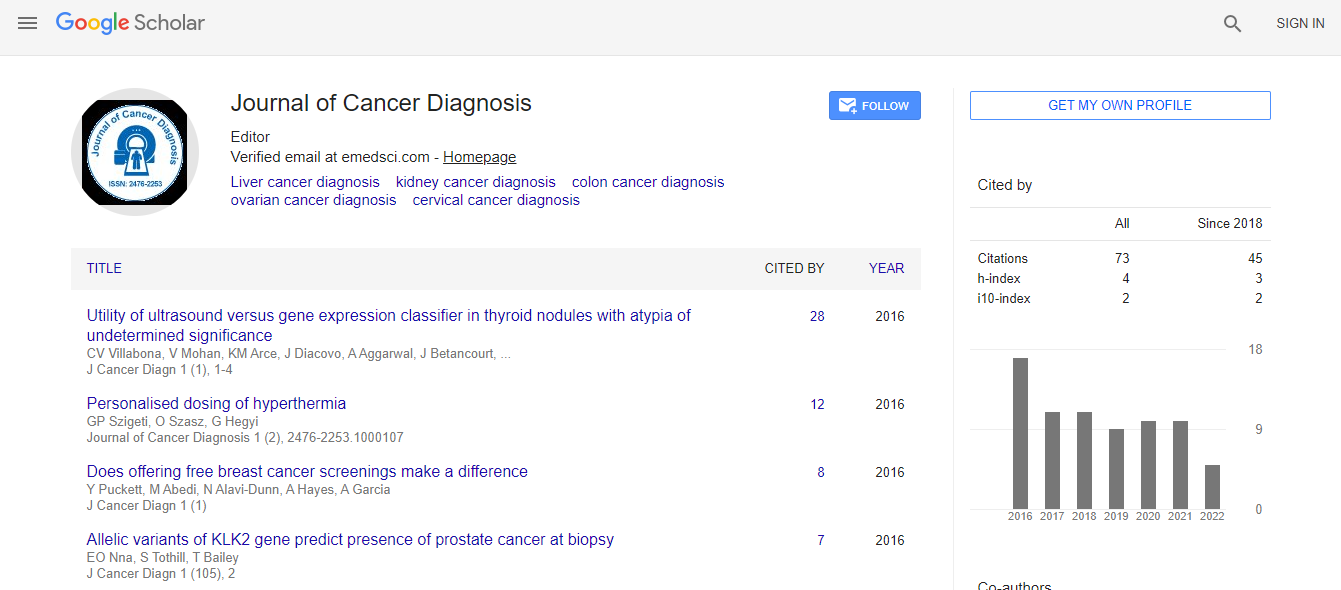Genomic Profiling and Mutation Signatures in Pediatric Blood Cancers: Toward Precision Diagnosis and Risk Stratification
*Corresponding Author: Dr. Elena Kovalenko, Department of Molecular Oncology, National Institute for Pediatric Hematology, Ukraine, Email: elena.k@gmail.comReceived Date: Mar 01, 2025 / Accepted Date: Mar 31, 2025 / Published Date: Mar 31, 2025
Citation: Elena K (2025) Genomic Profiling and Mutation Signatures in PediatricBlood Cancers: Toward Precision Diagnosis and Risk Stratification. J Cancer Diagn9: 286.
Copyright: © 2025 Elena K. This is an open-access article distributed under theterms of the Creative Commons Attribution License, which permits unrestricteduse, distribution, and reproduction in any medium, provided the original author andsource are credited.
Abstract
Pediatric blood cancers, including leukemias and lymphomas, represent a diverse group of hematological malignancies with complex molecular underpinnings. Despite significant advancements in treatment, these cancers remain a leading cause of cancer-related mortality in children worldwide. Recent developments in nextgeneration sequencing (NGS) and bioinformatics have enabled comprehensive genomic profiling, unveiling specific mutation signatures and pathways associated with disease onset, progression, and relapse. This article explores the emerging role of genomic profiling in pediatric blood cancers, emphasizing how specific mutation signatures can refine diagnosis, enable personalized therapy, and support accurate risk stratification. We also discuss the challenges and prospects of integrating genomic data into clinical workflows to improve outcomes for young patients.

 Spanish
Spanish  Chinese
Chinese  Russian
Russian  German
German  French
French  Japanese
Japanese  Portuguese
Portuguese  Hindi
Hindi 